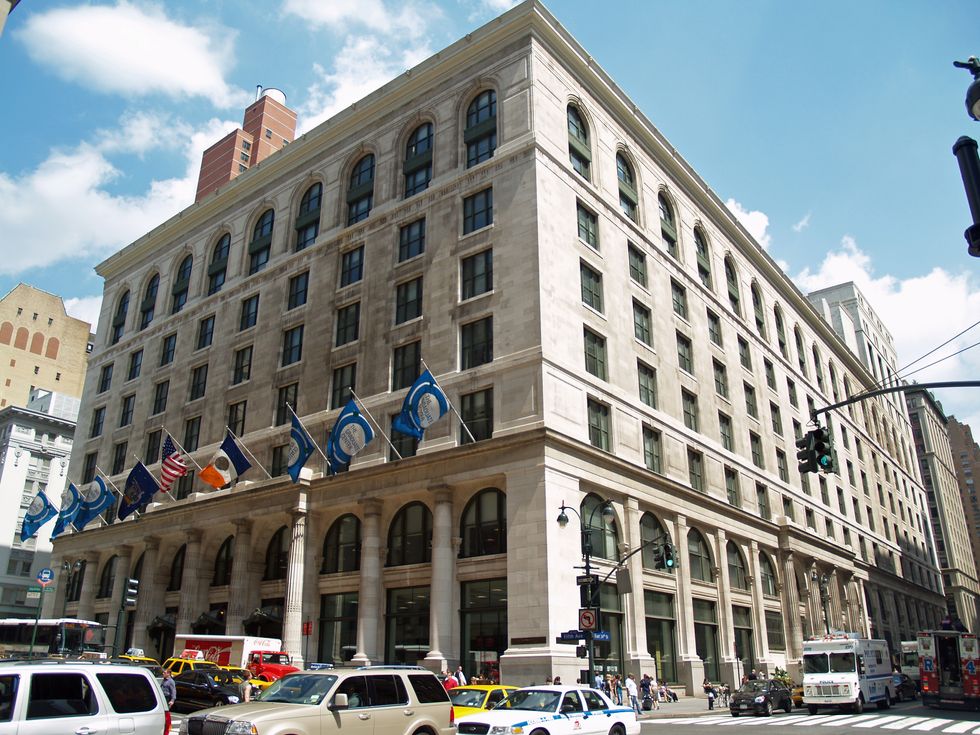In 1857, the Free Academy, which eventually became CUNY, was founded by a man named Townsend Harris. He believed that his academy would be a place where workers and other economically marginalized folks would be able to access higher education for free.
For the next century, CUNY provided free higher education to scores of immigrant families. But CUNY was still not open to everyone, as the vast majority of students were white, despite the fact that by the 1960s, most NYC public high school students were people of color.
But in 1969, activists won a major victory at CUNY, which involved the university agreeing to open admissions for NYC public high school students. Soon, the CUNY system was graduating more Black and Latinx students than any other university in the country at the time.
The pushback was immediate. In the mid 1970s, there was a financial crisis and a group of corporate elites were put in control of NYC's budget. They gutted the city's social spending and forced the city to institute tuition at CUNY. So in 1976, tuition was imposed for the first time at CUNY. This was also the first year the student body was, for the majority, students of color.
Over the past forty years, tuition has steadily increased. This has had a dramatic effect on the student body. Any student who has attended a CUNY school can attest to the struggle most students go through to simply pay tuition. Students often need to work to go to school, which often has a profoundly negative effect on academics. In fact, only about 44 percent of CUNY students graduate within "a reasonable time."
Despite these tuition increases, investment in CUNY has decreased over the past 40 years. CUNY facilities remain in intensely poor condition, often to the point where it becomes a joke for the student body. Meanwhile, the tuition most students struggle to pay does not go to improving CUNY campuses and instead goes to highly paid administrators. Interestingly enough, whenever there is a tuition hike, the salaries of the CUNY Administration go up substantially.
A report from last November from the NYC Inspector General found that the president of Brooklyn College had been using school money to pay her housekeeper and to throw a retirement party. The report also stated that it was likely that similar things were happening across the entire CUNY system. So clearly making students pay tuition isn't solving any problems at CUNY.
It is thus essential that in such a critical political moment, we work to abolish tuition at CUNY. A Bachelor's degree is now essential to getting a job, so it is important that we make sure that economically marginalized folks are able to access that. It is also true that current students deserve the same opportunities as previous (and whiter) generations.
But working to abolish tuition at CUNY is even bigger than that. It's ultimately about giving power back to students, so that we are able to make sure that CUNY exists to provide opportunity to workers instead of lining the pockets of Park Avenue aristocracy.


















